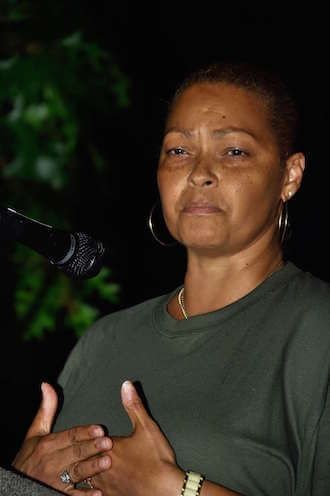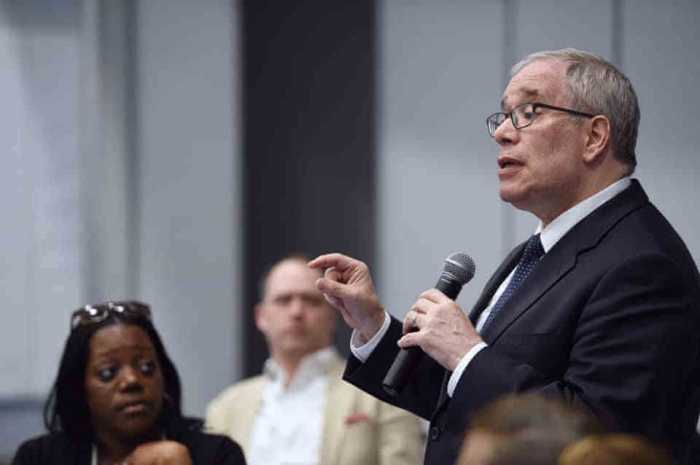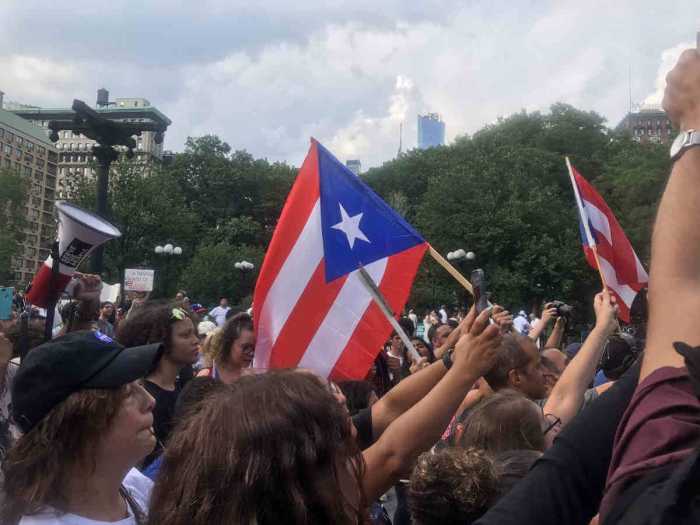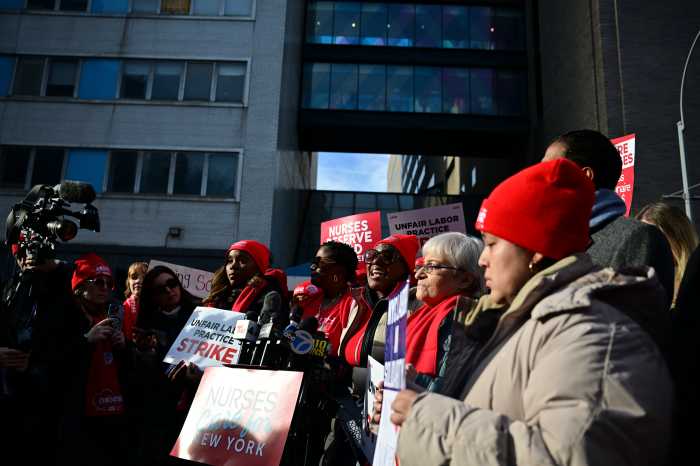In a departure from his previous policy, Governor Andrew Cuomo is establishing a system to review requests to shorten prison sentences of rehabilitated prisoners.
Four days before a planned demonstration near his Westchester County home that had the backing of a wide array of elected officials, the governor called longtime gay activist Allen Roskoff, saying, “I get it. I get it. It will be done.” Cuomo pledged to review requests for clemency from state prisoners.
The September 26 demonstration in the parking lot of the Presbyterian Church of Mount Kisco was the second annual “Candles for Clemency” gathering demanding that “Governor Cuomo get a heart; issue clemencies now.”
Cuomo pledges to establish review process for rehabilitated inmates
Cuomo sent his chief counsel, Alphonso David, who earlier in his career was a staff attorney at Lambda Legal, to address the demonstrators and describe the new review plan. Promising to open lines of communications with advocacy groups working on the clemency issue, David explained that applicants would have to produce evidence of their rehabilitation and of community support for them after leaving prison. The requests would then go to other “stakeholders,” including the prison superintendent, the district attorney who prosecuted their conviction, and the prisoner’s family. Davis specifically offered the assistance of his office to help attorneys and advocacy groups navigate the clemency application process.
David emphasized that the process would be fair and impartial and not just open to handpicked prisoners. Up until now, clemencies have been offered to an occasional non-violent drug offender. But reform of the Rockefeller drug laws has left few drug offenders serving long sentences, David said, and the approach to clemency review now being developed would be a “new situation.”
The governor’s office will consider applications from prisoners convicted of violent felonies that the New York State Board of Parole has traditionally seldom released. Particular attention will be paid to prisoners who received draconian sentences for crimes committed at a young age, elderly prisoners who pose little risk to society, and prisoners who have served long sentences but have demonstrated that their release would not harm others.
David said “several” applications had reached an advanced stage.
Shortening sentences for prisoners convicted of violent offenses may prove controversial, but meaningful reductions in the state’s prison population depends on the release of some inmates who fall into this category. In his five years as governor, Cuomo has issued five pardons, two of them to convicts already out of prison for years. Otherwise, his power to commute sentences or pardon inmates has largely fallen into disuse, with the pleas of prisoners and their families denied.
Donna Hylton a former prisoner at Bedford Hills Correctional Facility for Women, gave a passionate speech before a crowd of 100 calling for justice mixed with compassion.
“We are not our mistakes, we are human beings,” she said. “We have the capacity to change.”
Speakers at the Mount Kisco demonstration emphasized the downside of Cuomo’s resistance to clemency to date. Holly Coomber, convicted for helping her foster parents commit sex crimes, committed her offense at age 17, and her supporters say that under current standards she would be considered a trafficked minor who was coerced. She has been in prison for 30 years.
Judy Clark, a lesbian who was convicted for her role in the 1981 Westchester County Brinks robbery, a headline-grabbing crime staged by the radical Weather Underground that led to the murder of two police officers, has been a model prisoner, according to widespread accounts. She actively helps other inmates at Bedford Hills in their rehabilitation, and more than a thousand letters were sent to the governor last year seeking her release. She has been incarcerated for more than three decades.
Renee Valdez, a spokesperson for the Release Aging Prisoners Project (RAPP), said people over 60 seldom commit new crimes. Some prison wards contain feeble inmates in wheelchairs, and their care resembles that provided by nursing homes.
The website of the Jim Owles Liberal Democratic Club, of which Roskoff is president, listed endorsements for the “Candles for Clemency” demonstration from City Comptroller Scott Stringer, Public Advocate Letitia James, Manhattan Borough President Gale Brewer, Brooklyn Borough President Eric Adams, seven local members of Congress, and 17 members of the City Council, including Speaker Melissa Mark-Viverito. The September 26 rally was organized by Roskoff and Tony Hoffman, a former president of the Village Independent Democrats.
The crowd’s reaction to David’s remarks ranged from disbelief to applause, but they roared with enthusiasm when Brooklyn Councilmember Laurie Cumbo called for “structural changes and new policy” that would provide prisoners relief from harsh penalties. Two other Council members, both of them gay, Daniel Dromm of Jackson Heights and Corey Johnson from Greenwich Village, also addressed the gathering, as did Park Slope State Assemblymember Jo Anne Simon.
At last year’s “Candles for Clemency” event, demonstrators marched on Cuomo’s home. This year, relishing the possibility that a victory is at hand, they began and ended their demonstration in the church parking lot.





































